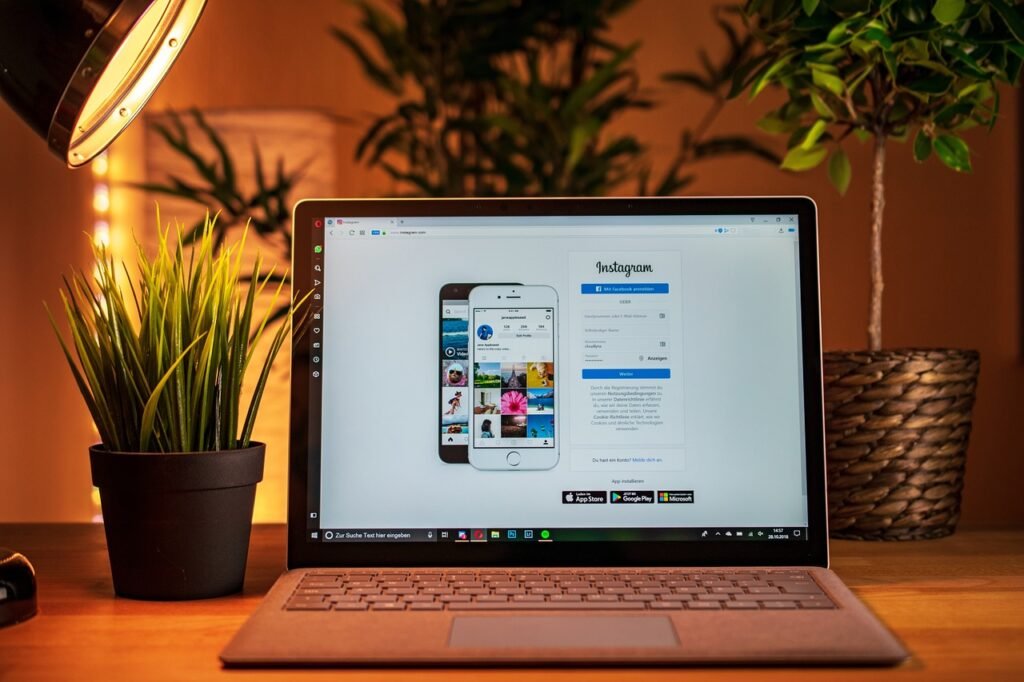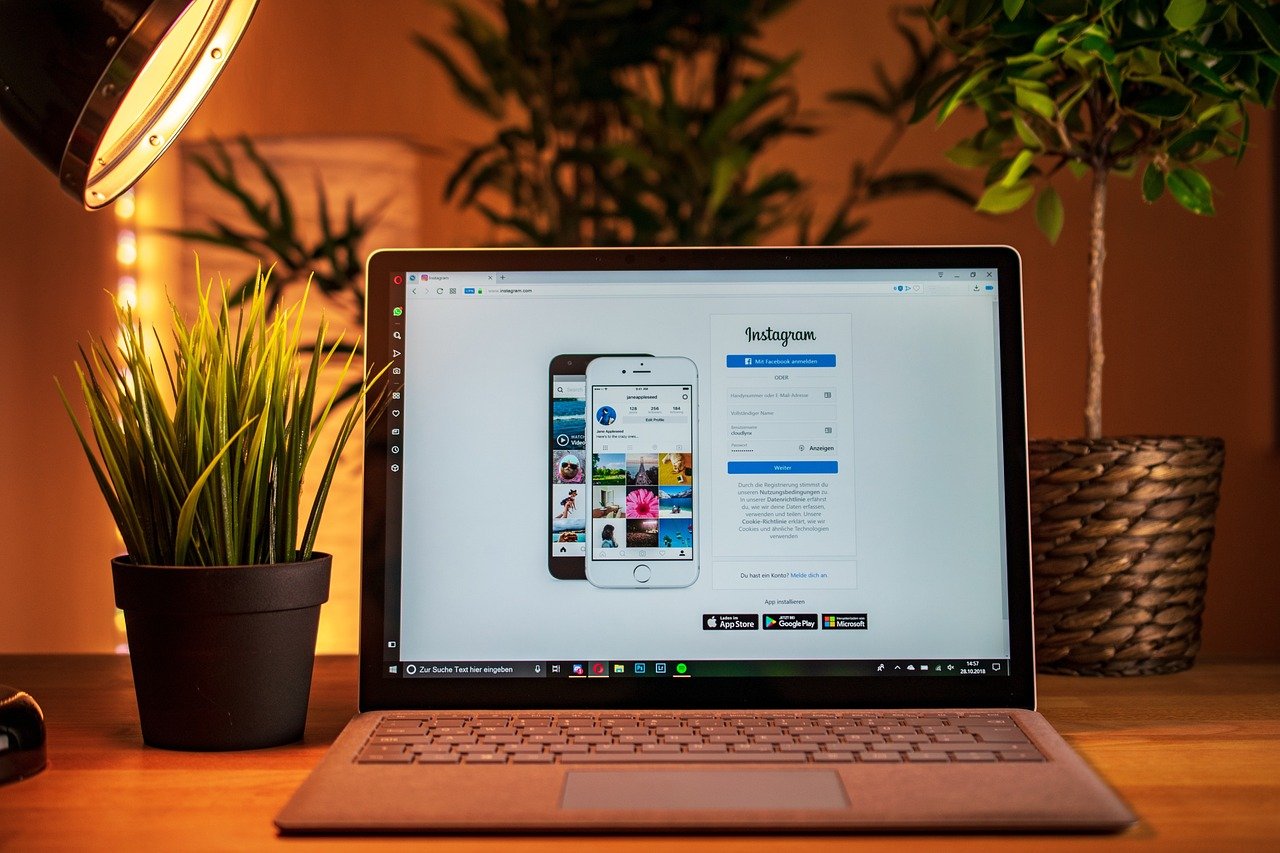In today's digital age, social media has become an integral part of our daily lives. It has also transformed the way businesses engage with their customers and promote their products or services. Small businesses, in particular, face unique challenges when it comes to marketing their brand in a saturated online world. This article will explore the power of social media influencers and how small businesses can effectively leverage their influence to boost their digital marketing efforts. Discover the key strategies and tactics that will help you harness the potential of social media influencers to reach a wider audience, increase brand awareness, and drive sales.

Why Should Small Businesses Consider Using Social Media Influencers?
Increased brand awareness
Social media influencers have a large following and a significant online presence, making them an ideal tool for small businesses to increase brand awareness. By collaborating with influencers, small businesses can tap into their follower base and reach a wider audience. These influencers have already established a rapport with their followers, and their endorsement of a product or service can help generate interest and curiosity among potential customers.
Access to target audience
Influencers have the ability to connect with specific target markets. They often focus on a particular niche or industry, which means that their followers share common interests and preferences. This targeted approach allows small businesses to reach the right audience without wasting resources on mass marketing efforts. By partnering with influencers whose followers align with the target market of the business, small businesses can effectively connect with potential customers.
Enhanced credibility and trust
Social media influencers have already established trust and credibility among their followers. Their recommendations and endorsements are seen as genuine and reliable, leading to increased trust in the products or services they promote. For small businesses, this association with trusted influencers can boost their credibility and help overcome skepticism or doubt among potential customers.
Cost-effective marketing strategy
Compared to traditional advertising methods, working with social media influencers can be a cost-effective marketing strategy for small businesses. The costs associated with influencer collaborations are often negotiable and can vary depending on the influencer's reach and engagement levels. By carefully selecting influencers who align with their target audience and negotiating fair compensation, small businesses can maximize their return on investment (ROI) and achieve cost-effective marketing results.
Choosing the Right Social Media Influencer
Identify your target audience
Before searching for influencers, it is crucial for small businesses to identify their target audience. Understanding the demographics, interests, and preferences of the target market will help narrow down the search for influencers who can effectively engage with and influence the desired audience.
Define your marketing objectives
It is essential to define clear marketing objectives before engaging with influencers. Whether the goal is to increase brand awareness, drive website traffic, or generate sales, having a defined objective will guide the selection process and ensure that the chosen influencers are aligned with these goals.
Research potential influencers
Thorough research is necessary to find suitable influencers for a small business. Look for influencers who have a genuine interest in the industry and align with the brand's values and aesthetic. Evaluate their content, engagement levels, and follower demographics to ensure they can effectively engage with the target audience.
Evaluate engagement and reach
Engagement and reach are key metrics to consider when evaluating potential influencers. Look into their average likes, comments, shares, and follower growth rate to assess their level of engagement. Additionally, analyze their follower count and demographic information to ensure they have a significant reach within the target market.
Consider authenticity and alignment
Authenticity and alignment are vital factors to consider when choosing influencers. Small businesses should partner with influencers who genuinely enjoy the brand's products or services, as this authenticity will resonate with their followers. Aim for influencers whose values and content align with the brand's image to ensure a cohesive and credible partnership.

Building Relationships with Social Media Influencers
Engage with their content
Engagement is a crucial aspect of building relationships with influencers. Regularly engage with their content by liking, commenting, and sharing their posts. This genuine interaction helps create familiarity and increases the chances of the influencers taking notice of the small business.
Offer incentives and collaborations
To entice influencers to collaborate, small businesses can offer incentives such as free products, exclusive discounts, or affiliate programs. These incentives provide value to the influencers and make the collaboration mutually beneficial. When proposing a collaboration, clearly outline the expectations, deliverables, and compensation to set the foundation for a successful partnership.
Provide creative freedom
Influencers are experts in creating content that resonates with their audience. Small businesses should allow influencers creative freedom to showcase the product or service in their unique style. By trusting the influencers' creative abilities, small businesses can benefit from their expertise in engaging their followers and establishing a connection.
Maintain open communication
Effective communication is vital for successful influencer partnerships. Small businesses should maintain open lines of communication with influencers to ensure a smooth collaboration process. Regularly check in, provide feedback, and address any concerns or questions promptly to maintain a positive working relationship.
Nurture long-term partnerships
Building long-term relationships with influencers can be highly beneficial for small businesses. Maintaining recurring collaborations with influencers ensures consistency and familiarity for their audience. By nurturing these partnerships, small businesses can establish trust, credibility, and a reliable presence in the influencer's community.
Creating Effective Social Media Influencer Campaigns
Set clear campaign goals
Before launching an influencer campaign, it's essential to set clear campaign goals. These goals should align with the overall marketing objectives and be specific, measurable, attainable, relevant, and time-bound (SMART). Setting clear goals helps guide the content creation process and allows for better tracking and analysis of campaign performance.
Establish collaboration guidelines
To ensure a smooth and successful influencer campaign, small businesses should establish collaboration guidelines. These guidelines may include the desired messaging, content restrictions, posting frequency, and timelines. Clearly outlining these expectations will help both parties align their efforts and create cohesive and effective campaigns.
Develop engaging content ideas
Collaborating with influencers provides an opportunity to create unique and engaging content. Small businesses should brainstorm creative ideas with influencers to showcase the brand's products or services in ways that captivate their audience. From tutorials and product demonstrations to reviews and behind-the-scenes glimpses, the possibilities for engaging content are endless.
Track and measure performance
Monitoring and measuring the performance of influencer campaigns is crucial to optimize future efforts. Utilize analytics tools to track engagement metrics such as likes, shares, comments, and click-through rates. Measure the impact of the campaign on website traffic, conversions, and sales to gauge its effectiveness and make data-driven decisions.
Utilize user-generated content
Encouraging influencers and their followers to create user-generated content (UGC) is an excellent way to extend the reach and impact of influencer campaigns. UGC not only showcases genuine customer experiences but also acts as valuable social proof for prospective customers. Small businesses can repurpose UGC on their social media channels, website, and other marketing materials to further amplify the campaign's results.

Utilizing Different Social Media Platforms
Instagram is one of the most popular social media platforms for influencer marketing. Its visual nature allows influencers to showcase products and experiences creatively. Utilize Instagram's various content formats such as feed posts, stories, and IGTV to engage with the audience effectively.
YouTube
YouTube offers an ideal platform for longer-form content and in-depth product reviews. Collaborate with influencers who have a strong YouTube presence to leverage their storytelling abilities and tap into their loyal subscriber base.
Although Facebook's organic reach has declined in recent years, it still has a vast user base. Partner with influencers who have a significant Facebook following to reach older demographics and engage with users through compelling video content, live streams, and interactive polls.
Twitter is known for its real-time conversations and viral trends. Collaborate with influencers who have an active Twitter presence to capitalize on trending topics, participate in discussions, and engage with their followers through concise and impactful tweets.
TikTok
TikTok has rapidly gained popularity, particularly among younger audiences. Collaborating with influencers on TikTok can help small businesses create engaging and entertaining short videos that rapidly spread across the platform, potentially reaching millions of users.
LinkedIn is primarily a platform for professional networking, making it ideal for B2B influencer marketing. Partnering with industry experts or thought leaders can help small businesses establish credibility, share knowledge, and connect with a professional audience.
Determining the Appropriate Budget for Influencer Marketing
Consider ROI and performance metrics
When determining the budget for influencer marketing, consider the potential return on investment (ROI) and performance metrics. Analyze campaign data, track website traffic, conversions, and sales, and evaluate the overall impact on brand awareness and engagement. A budget that aligns with the expected ROI will help maximize the effectiveness of influencer campaigns.
Negotiate fair compensation
The compensation for influencers can vary depending on factors such as reach, engagement, and industry relevance. Negotiate fair compensation based on the influencer's value to your campaign and your budget constraints. Consider offering a combination of monetary compensation, free products or services, and exclusive perks to ensure a mutually beneficial collaboration.
Allocate resources wisely
Budgeting for influencer marketing should be done carefully to ensure adequate resources are allocated. Consider the costs associated with influencer fees, product samples, packaging, shipping, and any additional marketing materials required for the campaign. Allocating resources wisely will help optimize the campaign's impact while staying within budget constraints.
Explore alternative strategies
Influencer marketing doesn't always have to be limited to monetary compensation. Consider alternative strategies such as affiliate programs, discount codes, or revenue-sharing models. These creative approaches can provide influencers with incentives while minimizing the direct financial impact on the small business's budget.
Legal and Ethical Considerations for Influencer Partnerships
Disclose sponsored content
Transparency is crucial in influencer partnerships to maintain trust with the audience. Small businesses and influencers should clearly disclose sponsored content by using appropriate hashtags like #ad or #sponsored. Familiarize yourself with the specific disclosure requirements set by the social media platform and adhere to them to avoid potential legal issues.
Comply with advertising regulations
In addition to disclosure requirements, small businesses must comply with advertising regulations set by relevant authorities. Familiarize yourself with the advertising guidelines and regulations specific to your industry and geographical location. Ensure that influencer campaigns adhere to these regulations to avoid legal complications and protect your brand's reputation.
Ensure ethical practices
When partnering with influencers, ensure they uphold ethical practices. Avoid collaborations with influencers who engage in dishonest tactics, such as purchasing fake followers or engagement. Maintain transparency and integrity in all influencer partnerships to protect the brand's reputation and maintain a loyal customer base.
Protect your brand reputation
Before entering into partnerships, thoroughly research and vet influencers to ensure their content is consistent with the brand's values and aligns with its desired image. Monitor influencer activities regularly and address any potential controversies or negative feedback to protect your brand's reputation. Establish a crisis management plan to handle any unforeseen issues that may arise during influencer campaigns.
Measuring the Success of Influencer Marketing
Track engagement metrics
Engagement metrics provide valuable insights into the success of influencer campaigns. Utilize analytics tools provided by social media platforms to monitor likes, comments, shares, and overall engagement with the influencer's content. Compare these metrics to baseline data to gauge the impact of the campaign and identify areas for improvement.
Measure website traffic and conversions
Analyzing website traffic and conversions is crucial to measure the effectiveness of influencer campaigns in driving real business results. Utilize tracking tools like Google Analytics to monitor the number of visitors, bounce rates, time spent on site, and conversion rates. Compare these metrics against the periods before and during the influencer campaign to assess its impact on website performance.
Conduct surveys or customer feedback
Surveys and customer feedback provide direct insights into customer perceptions and preferences. Create surveys or feedback forms to gather information about customers' awareness and perception of the brand after engaging with the influencer's content. Analyze these responses to understand the campaign's effectiveness and make data-driven decisions for future influencer marketing efforts.
Analyze sales and revenue data
Ultimately, the success of influencer marketing can be measured by its impact on sales and revenue. Analyze sales data during and after the influencer campaign to determine if there was a noticeable increase or change in purchasing behavior. Attribute sales to specific influencer campaigns by utilizing unique discount codes or tracking links to accurately measure their impact on revenue.
Case Studies: Successful Small Businesses Utilizing Influencer Marketing
Business A: Industry-specific collaboration
A small boutique eco-friendly clothing brand partnered with influential fashion bloggers and sustainability influencers to promote their brand ethos and showcase their clothing line. By collaborating with influencers who shared the brand's passion for sustainability, the small business successfully reached a wider audience of environmentally conscious consumers. The campaign resulted in increased brand awareness, website traffic, and sales.
Business B: Influencer takeover campaign
A local bakery teamed up with a popular food influencer to host an “Instagram takeover” campaign. The influencer took control of the bakery's Instagram account for a day, creating engaging content, answering customer questions, and showcasing the bakery's delicious treats. The campaign generated a significant increase in followers, engagement, and foot traffic to the bakery. The influencer's authentic connection with food lovers effectively promoted the bakery's products and boosted sales.
Business C: Product reviews and endorsements
A skincare startup collaborated with beauty influencers to review and endorse their new line of natural skincare products. The influencers shared their honest experiences with the products, highlighting the benefits and results they observed. The campaign successfully generated buzz around the brand, created social proof, and significantly increased online sales. The positive reviews from trusted influencers enhanced the brand's credibility and encouraged potential customers to try the products.
Overcoming Challenges in Influencer Marketing
Identifying fake influencers
The rise of fake influencers poses a challenge for small businesses. Take precautions to verify an influencer's authenticity by analyzing their follower growth rate, engagement levels, and the quality of their content. Look out for suspicious activities such as sudden spikes in followers, low engagement rates, or a lack of genuine engagement in comments.
Maintaining brand consistency
Collaborating with influencers requires careful attention to brand consistency. Ensure that the influencer's content aligns with the brand's values, messaging, and aesthetic. Establish clear guidelines to maintain a cohesive brand image throughout the campaign. Regularly monitor the influencer's content to confirm that it aligns with the agreed-upon brand guidelines.
Handling negative feedback or controversies
Influencer partnerships can sometimes lead to negative feedback or controversies due to factors beyond the small business's control. It is vital to have a crisis management plan in place to address and resolve any issues promptly. Respond to negative feedback with empathy and transparency, and work with the influencer to mitigate any potential damage to the brand's reputation.
Dealing with changing social media algorithms
Social media platforms frequently update their algorithms, which can impact the visibility of influencer content. Stay up to date with algorithm changes and adapt strategies accordingly. Utilize a diversified approach by collaborating with influencers on multiple platforms to mitigate the impact of algorithm changes on the overall campaign performance.
In conclusion, small businesses can effectively utilize social media influencers in their digital marketing efforts to enhance brand awareness, reach their target audience, and establish credibility. By following a strategic approach in choosing the right influencers, building strong relationships, creating effective campaigns, utilizing different social media platforms, and measuring success, small businesses can maximize the benefits of influencer marketing and achieve their marketing objectives.
I'm Ed Porada, the founder of VIP Marketing Hub and publisher of the VIP Marketing Hub e-Magazine. Join me in mastering digital marketing through workshops and training. We provide expert insights, top-notch education, strategies, and expertise to boost your brand's online visibility, generate leads, and build effective digital marketing for your business. Let's equip your brand with the essential digital tools and strategies to thrive online and off.

